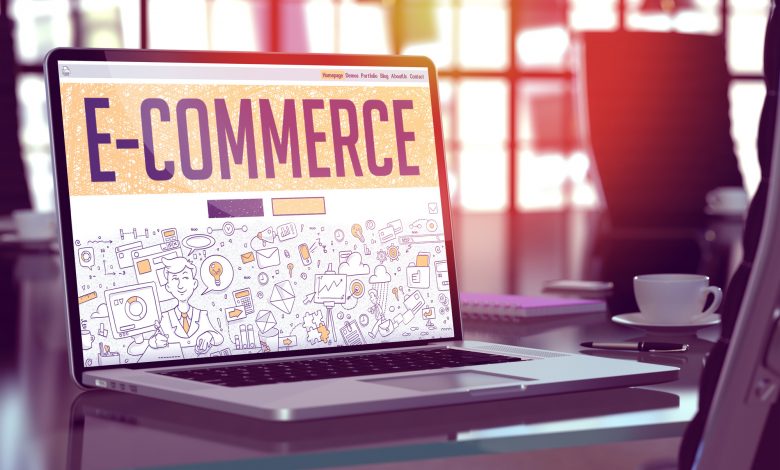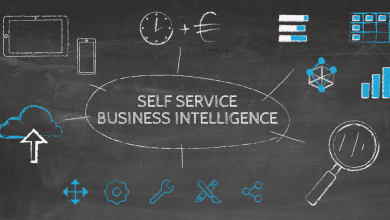12 Factors to Consider When Choosing Ecommerce Software

12 Factors to Consider When Choosing Ecommerce Software: Choosing e-commerce software is an important decision for any business that wants to be competitive in today’s economy.
Your software will have a profound effect on your ability to grow and the type of experience your customers will get. With so many choices available, it’s not easy to decide which one is the best fit for your company.
To help you make this decision, we compiled a list of factors you should consider when choosing ecommerce software.
1. Functionality
Functionality is the number of features and customization that the e-commerce software provides. This will have a direct effect on your business’s bottom line, as well as how you integrate with other applications.
For example, if you’re working with an unfamiliar or complex product, it would be helpful to choose an e-commerce platform with built-in tools and plugins for inventory management and fulfillment.
2. Price and Support Package
Price is the amount of money you are willing to pay for the software. You should do your research beforehand and decide on a budget.
Support packages are available for most e-commerce platforms, but they come at different levels. The bare minimum usually includes customer service, which can be helpful if you’re having trouble with your site or products.
More expensive support packages will get you more personalized help in programming or solving technical issues.
But remember comparing software costs is important if you want the best deal.
3. Security
Security refers to the level of protection your site has against hackers and other threats. Usually, this depends on the e-commerce software provider and their experience in providing security solutions.
You want your software to have security features such as firewalls and intrusion detection to stop hackers.
4. Integration With Other Solutions
It’s important that your e-commerce system integrates well with all the other software applications you use in your business. For example, if you sell on Amazon, it would automatically sync inventory between both platforms. It saves time and money feeding items into two different places at once.
5. Error Handling Capabilities
Your e-commerce system needs to be able to handle errors. For example, if the site crashes, you want the system to automatically restart so that it doesn’t affect your customer’s experience. You also need an e-commerce system with a built-in backup and recovery system that quickly allows you to recover from any data loss.
6. Design Customization
Ease of customization is one of the most important factors. It reflects your need to either tweak colors and fonts or add the latest software features. For example, if you want to add three languages to a store, it would be better for the system to allow this than for you to use an outside resource.
7. User Friendliness
With the growing number of people shopping online every year, user-friendliness is essential. For example, it should be easy for new customers to place orders and check out. And this should not need any help from your staff.
A mobile-friendly version is also critical nowadays. You want an e-commerce platform that is compatible with various devices like phones and tablets.
8. Support and Maintenance Cost Expectations
Support and maintenance cost is usually bundled with the license fee for an e-commerce software package. It allows you to get help when you’re stuck, but it also includes patches and system upgrades.
You want to invest in software that includes free support and regular software updates for the life of the license. One-time fee packages can also be a good option if you do not plan to expand your business or need more features in the future.
9. Plugins and Extensions
Plugins are available for most e-commerce systems, but they can differ widely in quality and effectiveness. For example, one plugin might allow you to integrate with shipping companies, while another might only offer bookkeeping integration.
They’re usually created by third parties or by the company that provides the platform. You want to install only those plugins that are useful to your business. They should include inventory management, SEO optimization, security features, and customer relationship management.
10. User Experience
User experience (UX) is how customers feel when they interact with your website or app. You want a platform that provides smooth navigation and intuitive interaction between users and their devices.
One example is responsiveness to different screen sizes. If you use responsive web design, then your site will have a better UX. It automatically adjusts to different viewing screens.
11. Ease of Use
Ease of use refers to the product’s effectiveness and efficiency. For example, you want a platform that allows you to perform all the tasks you need without learning how to use it.
This includes adding products and adjusting prices — all with a few clicks of your mouse or taps on a touchscreen. It would help if you didn’t have to spend hours trying to figure out how things work because time is money in any business. Your e-commerce system should help streamline your workflow so that you can focus on building your brand and getting customers.
You can work closely with software testing partners, such as those found at https://www.qualitylogic.com/, to test the software for ease of use.
12. Scalability
E-commerce system scalability is the ability to grow with your business’s needs. You want a system that can easily expand and change as you do.
For example, if your company adds new products, offers additional services, or opens additional locations, then your system should be able to handle those changes without causing problems for both customers and staff members.
In addition, future expansion means that your e-commerce system should include built-in ways to make upgrades. For instance, if you plan on integrating customer support features like live chat, it’s helpful if they’re already part of an add-on feature.
Choosing Ecommerce Software Simplified
The above factors should be considered and examined thoroughly while choosing ecommerce software.
It’s important to discuss your options for software with your IT department or technology partner before you decide on one. It will help ensure that you get exactly what you want from your e-commerce system.
For more information, keep exploring our blog.





